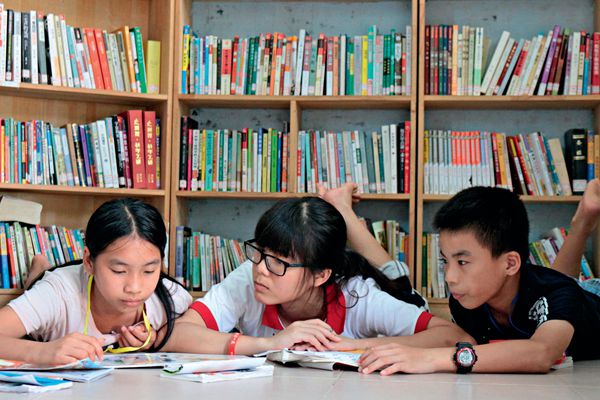Zhuzhu and Her Village Library
China Today, January 24, 2017 Adjust font size:
A Free, Public Space
Zhuzhu had nothing in her pocket except two credit cards, so how did she manage to establish the library?
Initially, she posted a message on her WeChat Moments and soon afterwards, some of her friends started donating books. A man from her village who had become a young migrant worker straight out of junior high school, donated a year’s rent. He said he used to dismiss school as useless, but after seeing more of the outside world, he really wanted to do something for school children back in the village, especially something related to culture and education.

Children read and study together at Zhuzhu’s library.
The principal of Lanbiao School was also supportive and provided Zhuzhu with some desks and chairs. Teachers from Sun Yat-sen University, who came to volunteer in the village, donated two bookshelves and children’s books. Zhuzhu also contacted a foundation in Guangzhou which also sent her over 800 books.
During this time, Zhuzhu had no earnings, and in addition to her own living expenses she paid for miscellaneous costs for the project. At a point her credit card debt came to tens of thousands of yuan. She had to resort to borrowing to pay her debts, but fortunately always managed to get by. Zhuzhu jokes that the payment due date each month was like a pending death sentence, then luckily she would survive and be reborn.
Her biggest pressure came from the objections raised by her family and the doubt of fellow villagers. Her peers had either gone to the cities to find work or had got married and had babies. Who, especially one from a poor family, would do non-profit work? How could a young woman handle all these things? Who would use the library in such a poor village?